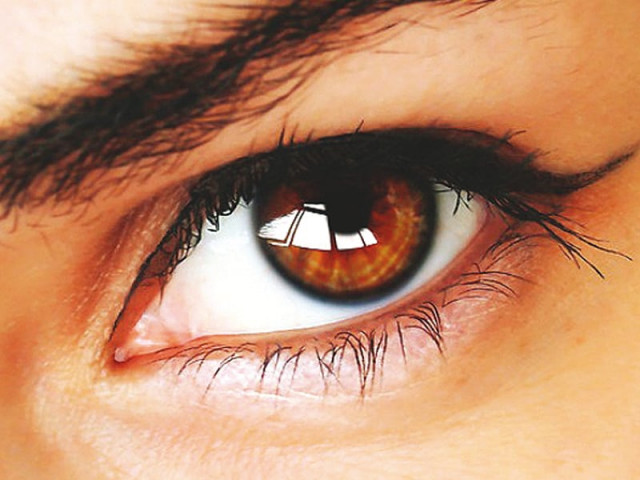6 things your eyes say about your health
“Eyes are a window to your soul,” said William Shakespeare. But more than that, eyes are a window to your health.

“Simply by looking in someone’s eyes, we can see things, such as arteries, veins and nerves, which are a reflection of what’s going on in the rest of the body,” said Dr Khurana, a retina specialist in Northern California. As compiled from the Prevention magazine, hhrjournal.org and sharecare.com, here are significant health conditions your eyes can signal.

High blood pressure
Hypertension or high blood pressure can trigger changes in the retina’s tiny blood vessels, causing them to narrow down or balloon up. Both symptoms signal an ongoing issue with larger vessels that supply blood to the heart, brain and kidneys. If you notice this in the mirror, make an instant visit to your cardiologist. A study in the Journal of the American Medical Association linked retinal changes directly with an elevated risk of heart failure.

Inflammation
Pain and redness of the eyes may be an indication of uveitis, an inflammation within the eye, which indicates a serious inflammation elsewhere in your body. The condition, which flares up when the immune system attacks its own tissues, is a marker in ailments from psoriasis to Crohn’s to rheumatoid arthritis. “When inflammation manifests itself in the eye, that often tips us off to other conditions,” commented Dr Khurana.

Thyroid issues
Graves’ disease, the most common cause of bulging eyes, is triggered when the thyroid gland goes into overdrive and produces excess hormones that attack muscles and tissues within the eye socket. This is a condition called hyperthyroidism. Women are especially at risk for Graves’ disease. It affects them five to six times more than it affects men and causes eye-related complications in more than 50 per cent of sufferers.

Diabetes
A 2014 study commissioned by United Healthcare found that diabetes is the chronic health condition most likely to be identified during an eye exam. That’s because high blood sugar levels can manifest in several places in the eye, such as weakening blood vessels in the retina, causing protein to leak into the macula (the part of the eye responsible for focusing). They can also block oxygen and nutrients from getting to the back of the eye, giving you a blurry vision at times. And while diabetes-related retinal damage is the main cause of vision loss in diabetics aged between 20 and 74, don’t panic. If the stipulation is caught and treated early through an eye test, the condition is unlikely to progress.

Depression
Do you have trouble drifting your gaze away from miserable pictures in the paper? The urge to avert your eyes but not being able to do so quicker, can be a warning of a psychological ill-health. Studies that have tracked eye movements of people with mental illnesses, including think anxiety, schizophrenia, and bipolar disorder, found that they have dissimilar gazing patterns. Affected groups tend to look at certain things longer as compared to their healthy counterparts. A 2013 study in the Journal of Abnormal Psychology found that depressed people took significantly longer to look away from photos of ‘negative stimuli’ versus those who aren’t depressed. Researchers theorise that people display a bias toward images that reflect their state of mind.

Allergies
Allergic rhinitis, which affects one in seven people and causes inflammation of the mucous membranes in the nose, could be the cause of under-eye circles. If you notice you have a runny nose without a cold or your eyes start tearing up suddenly, its time you visit a doctor because those dark circles are probably not because of lack of sleep. Breathing in anything from pollen to pet hair can clog sinuses and trigger a reaction that causes blood to pool under the eyes (the thinnest-skinned spot on your body), which results in a bruise-like appearance. Thankfully, the problem can usually be fixed by prescribed anti-allergies.
Compiled By: Umnia Shahid
Published in The Express Tribune, November 26th, 2014.
Like Life & Style on Facebook, follow @ETLifeandStyle on Twitter for the latest in fashion, gossip and entertainment.



















COMMENTS
Comments are moderated and generally will be posted if they are on-topic and not abusive.
For more information, please see our Comments FAQ